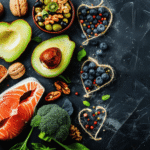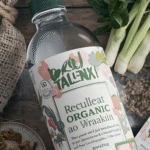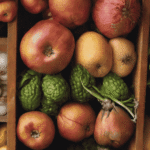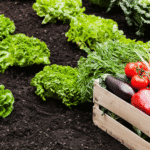Organic food has gone from being a niche trend to a global movement. Supermarkets dedicate entire aisles to it, restaurants highlight it on menus, and consumers often pay extra for products with the organic label. But along with its growing popularity comes a flood of confusion and misinformation.
Is organic food really pesticide-free? Is it guaranteed to be healthier? Or is it all just clever marketing designed to justify higher prices?
In this article, we’ll debunk some of the most common myths about organic food and separate fact from fiction — so you can make food choices that are informed, not influenced by marketing.
Myth 1: Organic Food is Pesticide-Free
This is perhaps the most widespread misconception.
The truth:
- Organic farming does use pesticides — but only those derived from natural sources (like neem oil, soap-based sprays, or certain minerals).
- Synthetic pesticides and herbicides are prohibited, but organic farmers are allowed to use approved natural alternatives when needed.
- Multiple studies confirm that organic produce typically contains 30–40% lower pesticide residues than conventional produce, but residues are not zero.
Key takeaway: Organic means lower pesticide exposure, not pesticide-free.
Are Organic Foods Safer? What Science Says
Myth 2: Organic Food is Always Healthier
Many shoppers believe that “organic” is automatically synonymous with “healthier.”
The truth:
- Organic food reduces exposure to synthetic chemicals and antibiotics, but nutrient levels are not dramatically different from conventional foods.
- Research (British Journal of Nutrition, 2014) found higher levels of antioxidants in organic crops, but vitamins and minerals are often similar.
- Health benefits depend more on overall diet quality (fruits, vegetables, whole grains) than on whether those foods are organic.
Key takeaway: Organic can be healthier in terms of reduced exposure, but nutrition depends on variety and balance, not just labels.
Myth 3: Organic Food Never Contains Additives
Some people think “organic” means “completely natural” or “straight from the farm.”
The truth:
- Organic packaged foods can contain additives, but only those approved by certification bodies.
- Examples include ascorbic acid (Vitamin C), citric acid, and natural enzymes.
- What’s different is that artificial preservatives, artificial colors, and flavor enhancers (like MSG) are prohibited.
Key takeaway: Organic processed foods still have additives — but the list is shorter, cleaner, and more natural compared to conventional products.
Myth 4: Organic Farming Can’t Feed the World
Another common argument against organics is that it produces lower yields and therefore can’t sustain global populations.
The truth:
- While organic farming typically produces 20–30% lower yields than conventional farming, it also supports soil fertility, biodiversity, and water conservation — ensuring long-term sustainability.
- A report from the UN’s Food and Agriculture Organization (FAO) notes that organic farming, combined with waste reduction and improved distribution, can contribute significantly to global food security.
- Feeding the world is not just about yield — it’s also about reducing waste (currently, 30–40% of food is wasted worldwide).
Key takeaway: Organic farming may yield less per acre but contributes to sustainable food systems that protect the future of farming.
Myth 5: Organic Food Always Tastes Better
Taste is one of the biggest selling points for organic food. Some people swear organic strawberries or tomatoes taste better than conventional ones.
The truth:
- Taste differences often come from freshness and variety, not certification.
- Organic food grown locally and sold quickly often tastes better because it’s harvested closer to peak ripeness.
- Conventional food that has traveled long distances may lose flavor, even if it’s nutritionally similar.
Key takeaway: Organic food can taste better, but freshness, ripeness, and variety matter more than the organic label.
Myth 6: Organic Food is Always Local & Sustainable
There’s a belief that organic automatically means local and eco-friendly.
The truth:
- Organic food can travel thousands of miles before reaching your plate. An organic apple from another continent is not necessarily more sustainable than a local, conventionally grown one.
- Sustainability depends on factors like transport, water use, and packaging.
- Buying local and seasonal food — whether organic or conventional — often has a smaller carbon footprint.
Key takeaway: Organic does not always equal local or sustainable. Choosing seasonal and local produce is just as important.
Myth 7: Organic = 100% Chemical-Free
Some consumers think “organic” means zero chemicals, zero treatments, and zero interventions.
The truth:
- All food, organic or not, is made up of natural chemicals (water, vitamins, minerals).
- Organic farmers use natural treatments like compost teas, plant oils, or microbial sprays.
- “Chemical-free” is a misleading term. The real difference is synthetic vs. natural inputs.
Key takeaway: Organic does not mean “chemical-free” — it means using natural methods and avoiding synthetic chemicals.
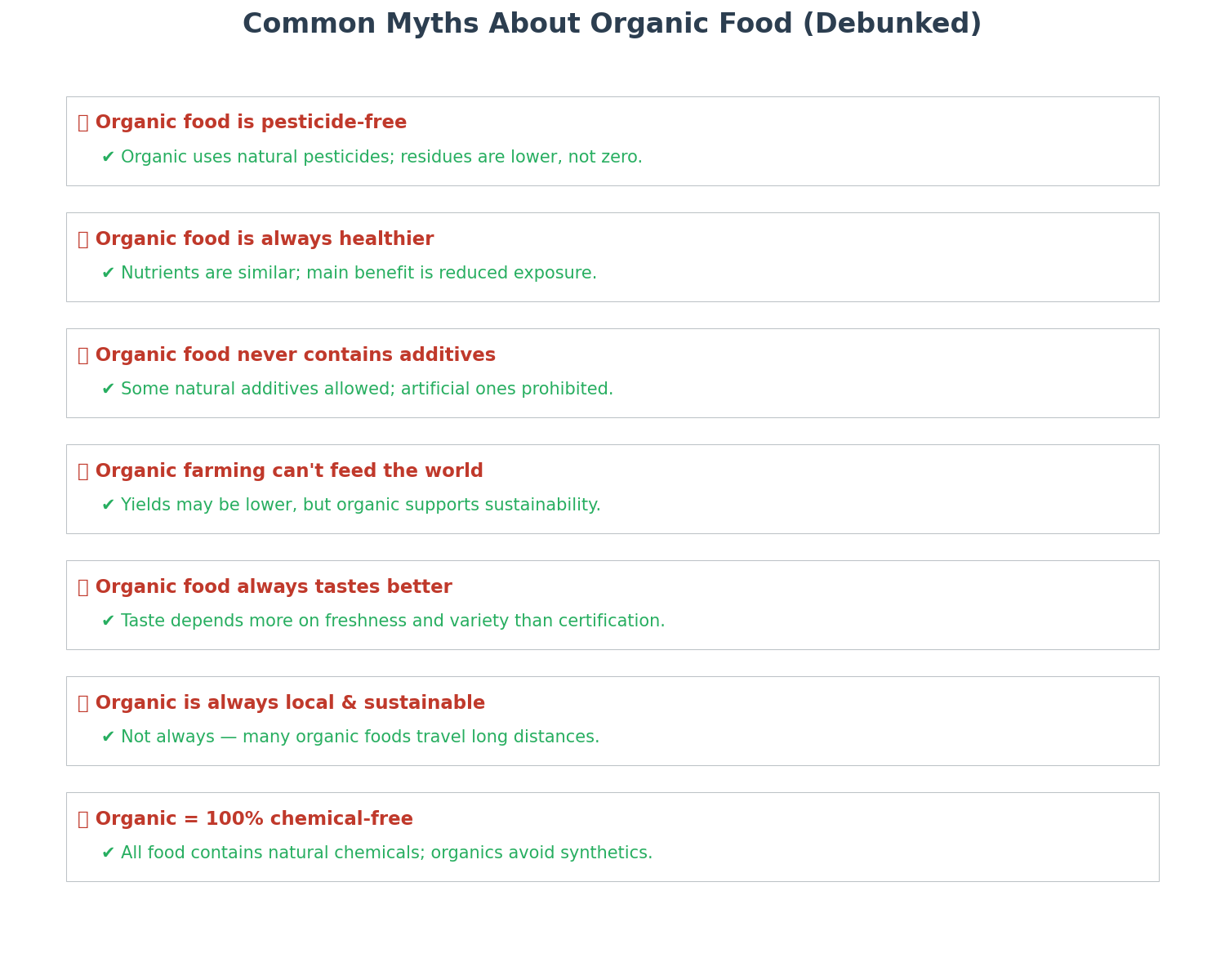
So, What’s the Truth About Organic Food?
When we cut through the marketing slogans and the myths, the truth about organic food is more balanced than most people think. It’s neither a miracle cure for health nor a scam designed to charge higher prices. Instead, organic food offers specific advantages and trade-offs that consumers should understand before making choices at the checkout counter.
The Clear Advantages of Organic
- Lower Pesticide Residues
- Multiple studies confirm that organic crops have fewer synthetic pesticide residues.
- While conventional foods are usually within legal safety limits, going organic reduces long-term, cumulative exposure — particularly important for children and pregnant women.
- No GMOs or Synthetic Additives
- Organic certification prohibits the use of genetically modified organisms (GMOs).
- Packaged organic products are free from artificial preservatives, food dyes, and flavor enhancers that are common in conventional processed foods.
- Reduced Antibiotic and Hormone Use in Livestock
- Organic livestock cannot be given routine antibiotics or growth hormones.
- This reduces the risk of antibiotic resistance spreading through the food chain, a major public health issue flagged by the WHO.
- More Sustainable Farming Practices
- Organic farming focuses on soil fertility, biodiversity, and water conservation.
- Healthy soil stores more carbon, which contributes to climate change mitigation.
The Limitations of Organic
- Not Pesticide-Free → Organic farmers can use approved natural pesticides; residues are lower but not eliminated.
- Not Always More Nutritious → Nutritional differences between organic and conventional foods are often modest, though organic crops sometimes have higher antioxidants.
- Not Synonymous with Local → Organic apples flown halfway across the world may carry a higher carbon footprint than local conventional apples.
- More Expensive → Organic farming is labor-intensive and often yields less, making organic products costlier.
The Balanced Approach for Consumers
- The smartest way to think about organic food is not in absolutes, but in priorities and context:
- Use the Dirty Dozen and Clean Fifteen lists to guide where organic really matters.
- Choose organic for foods your family eats daily (milk, eggs, apples, spinach).
- Don’t stress over buying 100% organic — variety and balance in your diet matter more for overall health.
- Support local farmers when possible — local, seasonal food (organic or not) often offers better freshness and sustainability.
The truth is this: Organic food reduces certain risks and supports sustainable farming, but it’s not a silver bullet. The best diet is one built on a foundation of whole, minimally processed foods, whether organic or conventional, and guided by smart, informed choices.
Conclusion
Organic food is surrounded by myths that can confuse shoppers. By separating fact from fiction, you can make smarter decisions at the grocery store.
Remember: choosing organic is about reducing risks, supporting better farming practices, and aligning with your values. It’s not about believing in marketing hype.
Whether you buy organic or conventional, the most important thing is to eat more whole foods — fruits, vegetables, and minimally processed meals — because that’s what truly drives better health.



